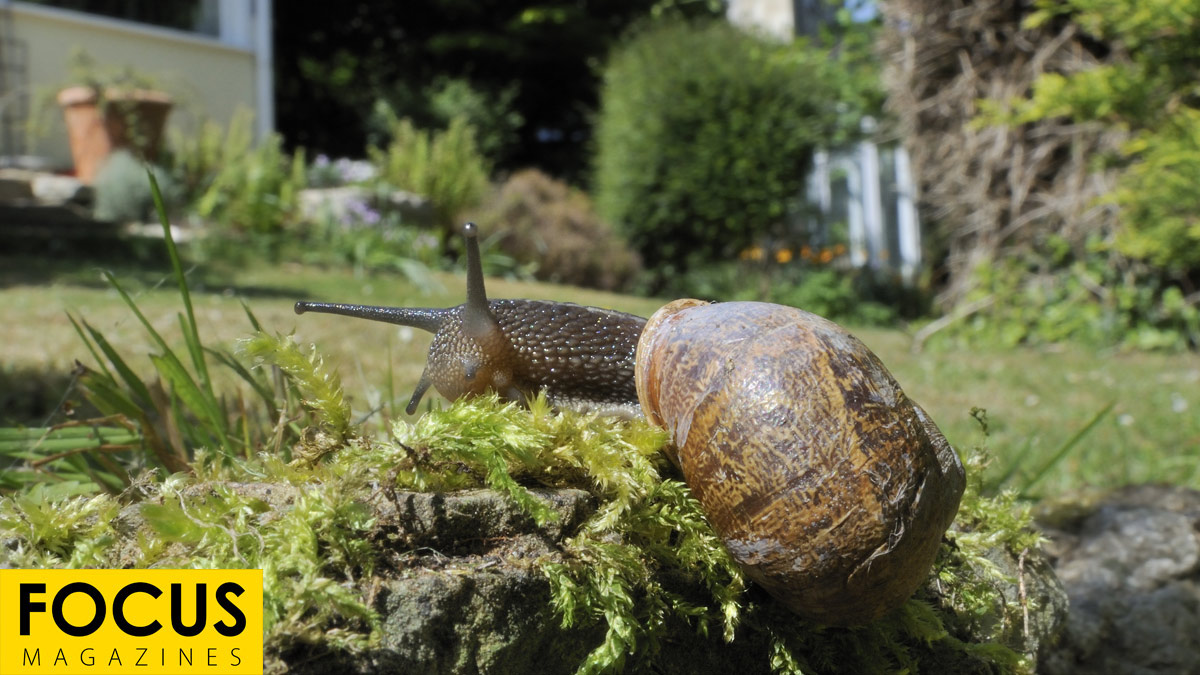I contemplated keeping this article as a piece of escapism, however the current global pandemic situation is sadly unavoidable.

Photography: © Nick Upton 2020 Vision
At the time of writing, apart from the country’s essential workers, we are largely confined to our homes, with one short, local exercise a day. This doesn’t mean we can’t still connect with and enjoy nature, indeed the connection with nature has never been so important for our mental well-being.
In a Facebook article in January, I recommended many things including digging a garden pond, a few of my friends have already got to work on this, it provides exercise and is a great addition to the garden both for you and the wildlife. I also suggested keeping a record of the wildlife you see, keeping lists, and helping conservation by sending your records to your local biodiversity recording centre. In South Wales this is SEWBReC: www.sewbrec.org.uk/submit-records-sewbrecord.page.
Just because the records are from the garden or on your local stroll doesn’t mean they are not valuable.
You may feel that there is nothing exciting to see locally or in your garden. This is far from the truth! It just needs a bit of a closer look, taking time to observe and finding joy in the smaller things. I only have a small city garden, however as I write this there are at least three bird nests active, a Robin in the Ivy, Great Tits in the nest-box and a Blackbird in the hedge. Me and my daughter will be enjoying their comings and goings over the coming months and hope to see the fledged babies in due course.
There are activities for young and old that can be done with bird boxes and nests, watching from a safe distance of course, (we should be well disciplined in this by now), so as not to disturb new parents and chicks. You can count how often the parents bring in food – does this vary at different times of the day? Or as the chicks get older and more demanding? Do the male or female birds share the nest work? There is certainly a school project in this for the children and definitely one that adults of any age can gain great joy from as well.
There are also a multitude of insects flitting in and around even the smallest garden. We might often pay them little attention apart from the big and beautiful butterflies. However, they all deserve closer scrutiny, as many of them are beautiful jewels in miniature and research in to their life-cycles is fascinating, with mini soap-operas and murder mysteries being played out in the insect world all around us.
For example, a bumblebee isn’t just a bumble-bee, there are actually 24 different species in the UK and these make up part of the 250+ bee species in the UK! Why not take time to see what species you have near you and become a bit of an expert in the process?: www.gwentwildlife.org/wildlife-explorer-1016
We are not all lucky enough to have gardens, however, the Dawn Chorus can still be appreciated by everyone by simply throwing open our windows first thing in the morning. In addition to this, all manner of wildlife can be seen on our local daily exercise stroll.
During this period of isolation/social distancing, as well as staying close to nature it is important that we as a species remain social.
Whilst we can’t meet in person, social media allows us to stay in touch. With this in mind we, at Gwent Wildlife Trust have set up a Facebook Group “Gwent Wildlife Spotting”. What better place to tell us of the creatures you have found, share photos and videos, get advice on identification and learn from each other along the way. It is a friendly group for all ages and wildlife spotting abilities and whilst it may have Gwent in the title, we are happy to hear from anybody, wherever you are and whatever you may have seen!
We hope you all stay safe and enjoy the spring as best as you possibly can.
To find out more about Gwent Wildlife Trust visit: www.gwentwildlife.org
follow us @gwentwildlife on Facebook and Twitter and of course, don’t forget to join our Gwent Wildlife Spotting group on Facebook too.
Andy Karran
Gwent Wildlife Trust Senior Conservation Ecologist

